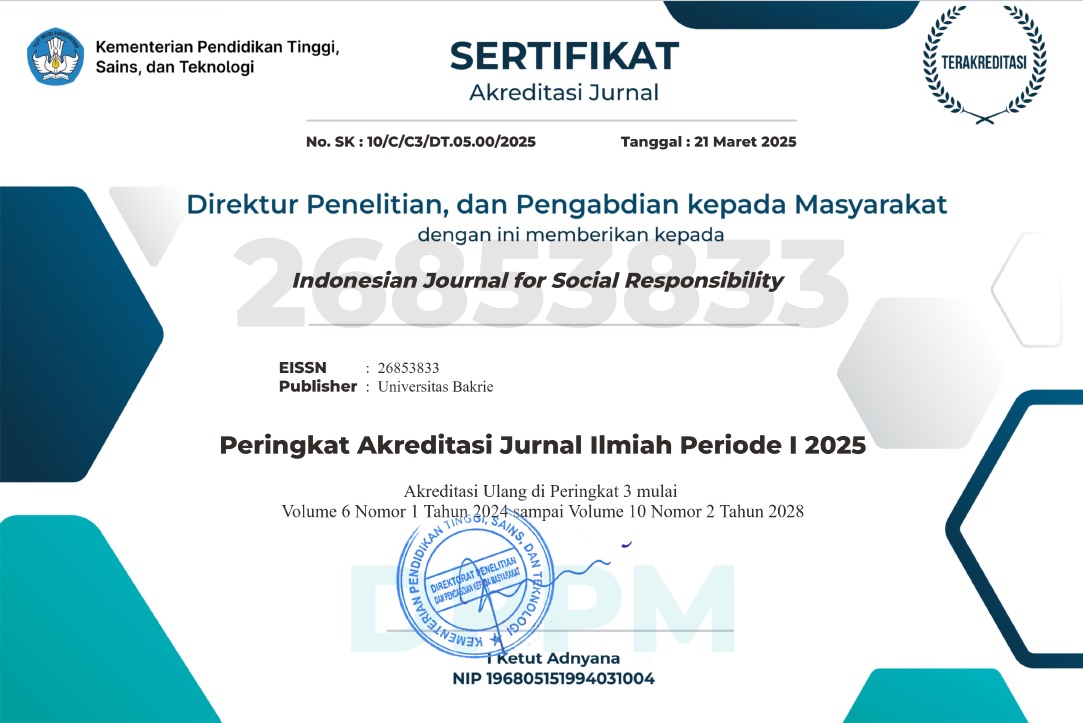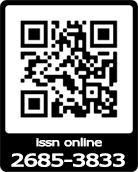Pelatihan dan Implementasi Pelaporan Keuangan Zakat, Infak, dan Sedekah Berbasis Digital di Masjid Jami Al-Mujahidin Bintara Bekasi Barat
DOI:
https://doi.org/10.36782/ijsr.v4i01.110Keywords:
Alms, Financial Reporting, Infaq, ZakatAbstract
Mosque is an entity where some sources of funds come from the community or public in the form of waqf, grants, infaq and alms. Mosques are often in the public spotlight regarding the management of funds collected from the ummah and the community, so that high transparency and accountability are needed from the mosque administrators in financial reporting. Jami Al-Mujahidin Masjid Bintara, West Bekasi which is a large mosque and has been supervised by the ministry of religion. The limitations faced by the mosque manager is that it has not done financial reporting in accordance with accounting standards, so needs to be trained in preparing digital-based financial statements in accordance with the Statement of Financial Accounting Standards (PSAK) No. 109 on accounting for zakat, infaq and alms. This training aims to facilitated the management of Mosque to easily prepare the digital-based financial statement in accordance with accounting standards and can implement the transparency and accountability. The method of activity is carried out offline at the Jami Al-Mujahidin Mosque Hall which was attended by the administrators of the Jami Al-Mujahidin Masjid Bintara, West Bekasi. The training material provided consists of understanding, recognizing, and measuring zakat, infaq, and alms; accounting transactions of non-halal funds; zakat, infaq, and alms accounting financial statements; and the use of financial reporting applications based on PSAK No. 109 based on digital. After participating in this program, all mosque administrators or managements can understand the objectives and benefits of financial reporting and can implement the preparation of financial statements in accordance with applicable standards by using a digital-based financial statement. With the limited time for activities, monitoring and evaluation of the implementation of digital-based financial statement applications according to applicable standards will be carried out in subsequent activities.
Downloads
References
Adenia, Q. S., & Husaini, A. (2019). Analisis Penerapan Digitalisasi Laporan Keuangan Pada Usaha Kecil. Jurnal Administrasi Bisnis, 72(2), 110–119.
Andarsari, R. P. (2016). Laporan Keuangan Organisasi Nirlaba (Lembaga Masjid). Jurnal Ekonika: Jurnal Ekonomi Universitas Kadiri, 1(2), 143-152.
Ghufraanaka, & Septiarini, D. F. (2016). Pengakuan, Pengukuran, Penyajian, dan Pengungkapan Aset Kelolaan Pada Lembaga Amil Zakat. Jurnal Ekonomi Syariah Teori dan Terapan, 3(5), 375-390.
Ikatan Akuntansi Indonesia. (2018). PSAK No. 109. Dewan Standar Akuntansi Keuangan. Jakarta: Salemba Empat.
Kementerian Agama RI. (2019). Al-Quran dan Terjemahannya (Edisi Penyempurnaan). Lajnah Pentashihan Mushaf Al-Quran.
Martani, D. (2012). Akuntansi Keuangan Menengah Berbasis PSAK. Jakarta: Salemba Empat.
Qomar, N. N., Yulinartati, & Nastiti, A. S. (2019). Penerapan PSAK 109 Tentang Pelaporan Zakat, Infak dan Sedekah Pada Masjid At-Taqwa Tempurejo. Jurnal Studi Mahasiswa Akuntansi Universitas Muhammadiyah Jember, 3(3), 281-290.
Ritonga, P. (2017). Analisis Akuntansi Zakat Berdasarkan PSAK No 109 Pada Badan Amil Zakat Nasional (BAZNAZ) Sumatera Utara. Jurnal KITABAH, 1(1), 1-19.
Sanusi, M., & Syaikhu, A. (2014). Al-Majid: Al Quran Terjemah dan Tajwid. Beras.
Shahnaz, S. (2016). Penerapan PSAK no. 109 Tentang Pelaporan Laporan Keuangan Akuntansi Zakat, Infak/Sedekah Pada BAZNAZ Provinsi Sulawesi Utara. Jurnal Berkala Ilmiah Efisiensi, 16(1), 449-457.
Undang-Undang Nomor 23 Tahun 2011 Tentang Pengelolaan Zakat. 25 November 2011. Lembaran Negara Republik Indonesia Tahun 2011 Nomor 115. Jakarta.
Wahyuningsih, Karamoy, H., & Afandy, D. (2018). Analisi Pelaporan Keuangan di Yayasan As-Salam Manado (Berdasarkan PSAK 45 dan PSAK 109). Jurnal Riset Akuntansi Going Concern, 13(2), 512-528.
Yanuar, F. A., & Hanifah, W. S. (2020). Telaah Penerapan PSAK 45 dan PSAK 109 dalam Rekontruksi Akuntansi Pelaporan Keuangan Masjid: Sebuah Studi Literatur. Jurnal Akuntansi Syariah, 4(1), 45-55.















